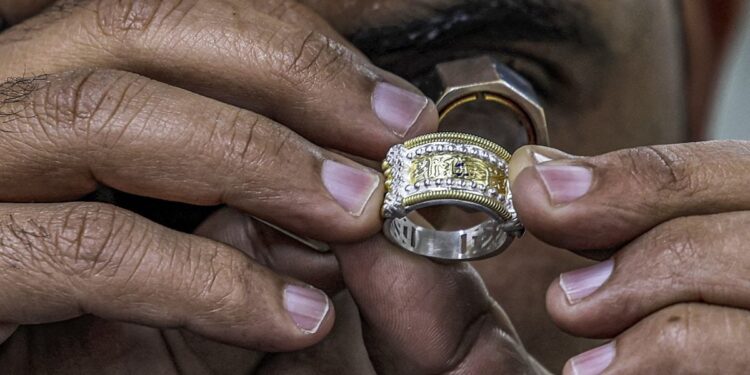Egypt is witnessing an extraordinary gold boom, driven by a mix of new mining ventures, illicit cross-border trade from war-torn Sudan, and cash-strapped families selling their jewellery to survive inflation. The surge in gold supply and demand has turned the precious metal into both a lifeline and a symptom of deeper economic strain.
Mining revival and foreign interest
In recent years, Egypt has sought to revitalise its mining industry as part of a broader diversification plan aimed at reducing reliance on tourism and remittances. Several new gold exploration licences have been awarded to international companies, including firms from Canada, the UK and Australia, signalling Cairo’s intent to transform the sector into a key export earner.
The Eastern Desert—once home to ancient Pharaonic gold mines—is now at the heart of this modern revival. The Sukari mine, operated by London-listed Centamin, remains the country’s flagship producer, yielding hundreds of thousands of ounces annually. But smaller sites and new concessions are rapidly expanding output, feeding both the domestic and regional markets.
Conflict gold from Sudan
However, part of Egypt’s booming gold trade comes from less official sources. The ongoing civil war in neighbouring Sudan has fuelled a shadow market for smuggled gold, as rival factions sell the metal to finance their military operations. Large quantities are believed to be entering Egypt through porous desert borders, bypassing formal customs channels.
Analysts say this illicit flow has inflated Egypt’s gold reserves and complicated efforts to stabilise its currency. “The influx of Sudanese conflict gold is both an opportunity and a liability,” said one Cairo-based economist. “It boosts short-term supply, but it carries reputational and financial risks for Egypt’s formal economy.”
Families selling their last assets
At the household level, gold has become a financial refuge. Soaring inflation—currently above 35 percent—has eroded savings and weakened the Egyptian pound, prompting many families to liquidate their jewellery for cash. Pawnshops and gold souks in Cairo, Alexandria and Aswan report record footfall as citizens trade wedding rings and heirlooms to pay for food, rent, and school fees.
Jewellers say the rush to sell has paradoxically pushed demand higher, as investors and ordinary Egyptians alike view gold as one of the few stable stores of value. The government, in turn, has encouraged gold-backed investment schemes and relaxed import restrictions in an effort to channel activity into formal markets.
Boom with a warning sign
While Egypt’s gold boom is adding liquidity and foreign exchange, it also reflects deep economic distress. The combination of rising mining output, war-fuelled smuggling, and widespread household liquidation underscores the fragility of the nation’s financial stability.
As one trader in Cairo’s historic Khan el-Khalili market put it: “Everyone is buying and selling gold—but few are doing it for profit. Most are just trying to survive.”
Newshub Editorial in Africa – 23 October 2025




Recent Comments